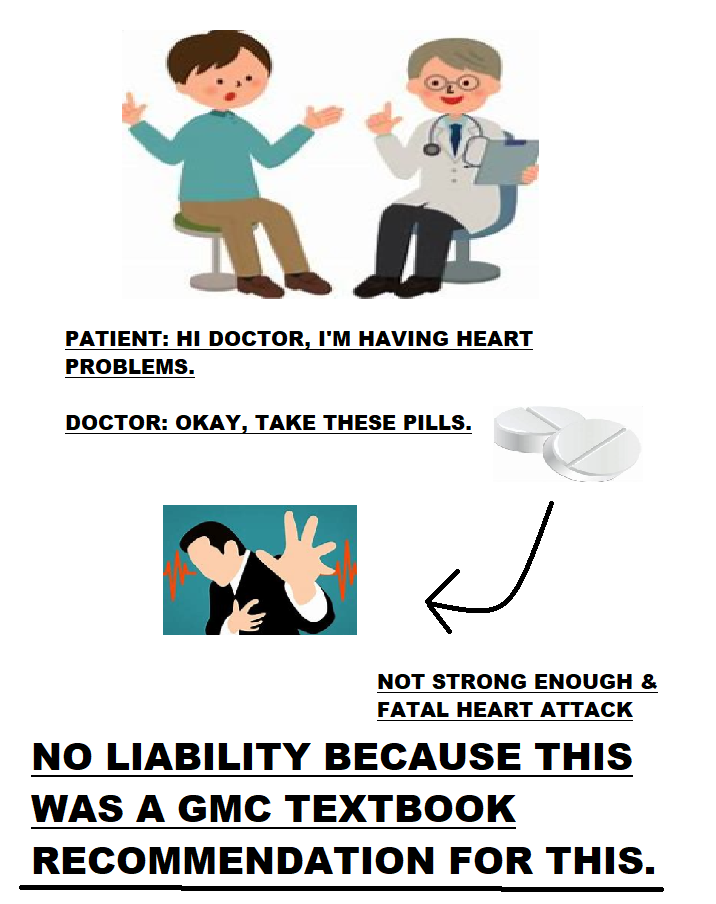McCulloch & Ors v Forth Valley Health Board (Scotland) [2023] UKSC 26 (12 July 2023)
Citation:McCulloch & Ors v Forth Valley Health Board (Scotland) [2023] UKSC 26 (12 July 2023)
Rule of thumb:If you have been to a doctor complaining of chest-pain/heart problems, and then take a heart-attack and get injured or die is the doctor liable in medical negligence? As a general rule, no. It is extremely difficult & borderline impossible to raise a successful medical negligence case in these circumstances.
Background facts:The facts of this case were that a man went to his doctor complaining of symptoms which suggested heart problems. The doctor diagnosed the heart problems, and set the man on a certain course. However, the man later died of a heart attack. His family raised a claim for medical negligence as they were upset that something he had gone to the doctor about & obtain professional medical advice in relation to would then kill him.
Parties argued:His family argued that if he had been given a proper prescription then he would not have died of a heart attack and would still be alive. They led evidence arguing the exact prescription he should have been given. They further argued that the man should have been given the option of all the different treatments available and been able to pick which one he wanted to take. The NHS argued that the treatment which the doctor advised the man to take was a valid & recognised medical path from the General Medical Council Guidelines, and as this was a valid & recognised course of treatment, there was no medical negligence. The NHS further argued that with heart disease it is extremely difficult to prove factual causation – the but for legal test that minor causes do not bring legal liability - it is impossible to say that lifestyle choices of a lack of exercise and unhealthy diet was not the main cause of the man’s death rather than the doctor with a heart attack.
Court held:The Court upheld the arguments of the NHS. The Court affirmed that where a patient is about to undergo surgery, all the options and risks have to be presented to them in a long list of options. However, when it is diagnosing a condition and treatment, a doctor just has to recommend one treatment which is valid in accordance with the Guidelines, and it is up to the patient to seek 2nd 3rd and 4th opinions if they want to hear different options, rather than the doctor having any obligation to do this. The Court also affirmed that the ‘but for’ test had not been proved in this case, with it being difficult to prove that thousands of lifestyle choices over many years were not the main cause of a heart attack with any blame for a doctor being too minor a cause to bring liability.

Ratio-decidendi:
‘Given our conclusion that Dr Labinjoh was not in breach of a duty of care in not informing the patient about the possible alternative treatment by NSAIDs, the questions on causation (see para 44 above) do not arise and we prefer to say nothing about them… For the reasons we have given, the professional practice test (derived from Hunter v Hanley and Bolam) is the correct legal test in determining what are the reasonable treatment options that a doctor has a duty of reasonable care to inform a patient about. This is to apply the law laid down in Montgomery and we reject the appellants’ submissions which would constitute an unwarranted extension of that law. We would therefore dismiss the appeal’, Lord Hamblen at 82-83.
Warning: This is not professional legal advice. This is not professional legal education advice. Please obtain professional guidance before embarking on any legal course of action. This is just an interpretation of a Judgment by persons of legal insight & varying levels of legal specialism, experience & expertise. Please read the Judgment yourself and form your own interpretation of it with professional assistance.

